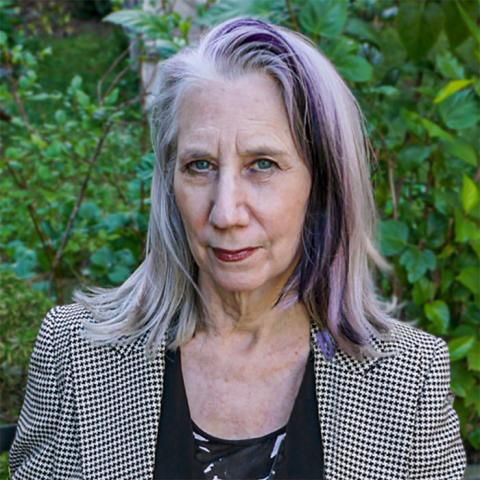In my first book, Feminist Conversations: Fuller, Emerson, and the Play of Reading (Cornell UP), I discussed Margaret Fuller's influence over Emerson's work and, because of his influence, her subtle but unacknowledged influence over powerful intellectual currents. [For an example of this, see my essay about Cornell West in the Spring 2002 edition of Studies in Romanticism (link below). Because Fuller was a translator, I used theories of translation to discuss her influence. Just as I was finishing Feminist Conversations, I heard Cathy Caruth lecture on trauma theory at the English Institute, and I began to see a relationship between the double structures of translation and the double structures of trauma theory. After reading the Freudian approach to trauma, I began to think about trauma theory before Freud. That approach took me back to issues surrounding Mesmerism and the hypnotic trance. Because Mesmerism came to this hemisphere through the French colony of St. Domingue (soon to be Haiti), an odd relationship between slave insurrection and Mesmeric practices became part of the story. I worked largely with the Douglass archives to consider his approach to traumatic behavior as he was witnessing it in the white fear associated with abolition. That is, he studied the traumatic response of perpetrators, not victims, of "slave power." I saw that his account became useful for Harriet Beecher Stowe when she wrote her second abolitionist novel Dred-- based on Nat Turner-- and for W. E. B. Du Bois when he wrote his biography of John Brown and his famous account of Black Reconstruction. I also realized that Du Bois was a contemporary of Freud and considered his different approach to trauma theory as it followed the work of Douglass.
Early considerations of Du Bois and trauma theory can be found in my 2002 Cultural Critique essay (link below).The final thinking about this unique approach to trauma theory can be found in The Archive of Fear: White Crisis and Black Freedom in Douglass, Stowe, and Du Bois (Oxford UP).
Other essays on Poe and trauma theory have appeared in Poe Studies (link below) and as “Temporal Effects: Trauma, Fuller, and Graphicality in Poe,” The Oxford Handbook of Edgar Allan Poe, Eds. Scott Peeples, Gerald Kennedy (Oxford UP, December 2018).https://academic.oup.com/edited-volume/34633
The Archive of Fear: White Crisis and Black Freedom in Douglass, Stowe, and Du Bois https://www.google.com/books/edition/The_Archive_of_Fear/iZr9DwAAQBAJ?hl...
Studies in Romanticism
The Work of Trauma: Fuller, Douglass, and Emerson on the Border of Ridicule
Du Bois on Trauma “Du Bois on Trauma: Psychoanalysis and the Would-Be Black Savant,”
Poe Studies, Vigorous Currents, Painful Archives: The Production of Affect and History in Poe’s “Tale of the Ragged Mountains" muse.jhu.edu/article/508856.
For more recent work on Fuller and trauma theory see “Quotation, Simile, Photograph: Margret Fuller on The French in Algiers,” Nineteenth-Century Prose, Vol.42, No. 2: Fall 2015, 155-180.: https://go.gale.com/ps/i.do?id=GALE%7CA438949488&sid=googleScholar&v=2.1...
- Adaptation
Easy A, or, Who's Your Daddy: The Scarlet Letter Once More - Cultural Critique
Theorizing a Lover's Discourse: Womanizing Margaret Fuller - New England Quarterly
The Storied Facts of Margaret Fuller - Studies in Romanticism
Feminism in Translation - Readers in History
Reading Before Marx: Margaret Fuller and the New-York Daily Tribune - Lombardo Review
Homer's Odyssey - Social Text
Emerson's Scene Before the Women - A Companion to American Thought
Margaret Fuller - Feminist Conversations
Fuller, Emerson, and the Play of Reading - Jacobus Review
Review of Psychoanalysis and the Scene of Reading - American Literary History
Footnoting the Sublime: Margaret Fuller on Black Hawk's Trail
